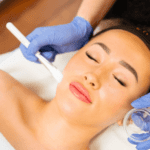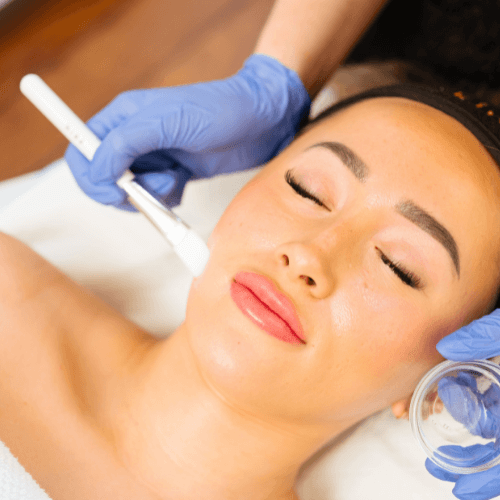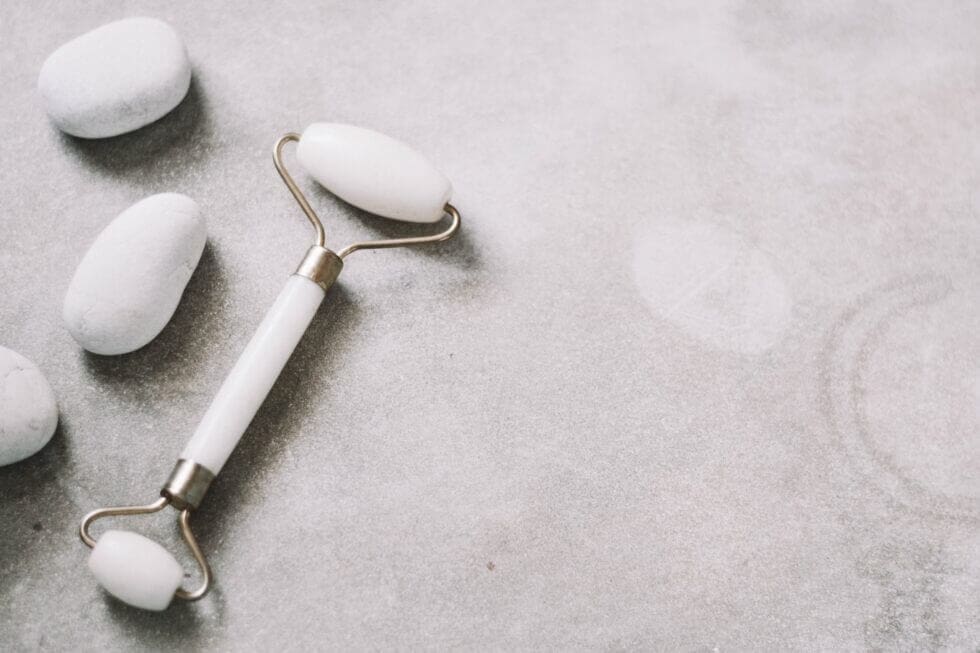Gut health and it’s link between inflammation and diseases has been a hot topic of late. The rise of allergies, asthma, dermatitis, digestive issues and some auto immune diseases are thought to be linked to disruption to the healthy gut bacteria, via the westernised diet and lifestyle. This disruption leads to ‘leaky gut’ (dysbiosis) and inflammation within the gut and ultimately throughout the body and the effects can visibly be seen on the skin.
Firstly let’s talk about the important role the gut plays in the body.
The gut is responsible for breakdown of food, absorption of fluids and nutrients and the excretion of vital nutrients. For the gut to be able to do this it has over 1kg of bacteria!! Not all of this bacteria is the ‘good’ bacteria. In a healthy digestive system 85-90% of the bacteria is ‘good’ and 10-15% is ‘bad’. This is a delicate but essential balance for optimal gut function.
Gut issues arise when this delicate balance is interrupted and there is a rise in the amount of ‘bad’ bacteria. This can be a result of:
- Stress & not enough sleep – this causes cortisol levels (stress hormone) to be consistently raised, suppressing the immune response, increasing the release of sugars leading to inflammation and alters gastric absorption leading to vitamin deficiencies vital for providing the fuel for the ‘good’ bacteria to function. (Side note: It also stops the normal production of collagen & elastin leading to wrinkles!! So rest up for younger-looking skin).
- Antibiotic use – antibiotics are necessary at times to reduce the amount of ‘bad’ bacteria, but they also destroy the ‘good’ bacteria at the same time.
- Diet high in processed foods, refined sugars and alcohol – not supplying the gut with nutrient-rich foods impairs the ‘good’ bacteria from functioning optimally and feeds the ‘bad’ bacteria.
- Gluten & lactose – for those who are intolerant; gluten and lactose can lead to gut inflammation and decreased nutrient absorption
- Constipation – constipation can lead to an increase in ‘bad’ bacteria being present and spreading throughout the bowel, leading to excess toxins being released
All of these cause inflammation within the gut. The inflammation causes poor breakdown of ingested food, malabsorption of nutrients and damage to the gut wall, causing the cells to separate slightly, allowing toxins and bacteria to leak into the bloodstream (gut dysbiosis aka ‘leaky gut’). The systemic release of toxins causes inflammation throughout the body, resulting in symptoms of bloating, gas, irregular stools, abdominal pain, fatigue, headaches, anxiety, mood changes and food allergies/sensitivities. Outwardly; the skin can appear irritated, inflamed and have acne breakouts.
Interestingly, the study of gut health and it’s link to skin appearance is not new! The link was first made in the 1930s by 2 dermatologists J.H. Stokes and D.M. Pillsbury. It has been discovered that a high percentage of people suffering from acne have low hydrochloric acid in their stomach, causing impaired digestion of food, overgrowth of ‘bad’ gut bacteria, increased gut inflammation and ‘leaky gut’.
So how do we increase the ‘good’ bacteria in the gut and begin to heal the skin from the inside?
At this point, most people would head to the pharmacy and buy good quality probiotics…. And this is a good step to take. However, there is no point in adding probiotics to your diet if you are also not going to add pre-biotics that provide the essential nourishment for the functioning of the ‘good’ bacteria.
Pre-biotics feed the ‘good’ bacteria, stimulate their growth and aid in the ‘good’ bacteria sealing the gut wall. Pre-biotics are essential for the optimal functioning of the ‘good’ gut bacteria and can be found in undigestable plant fibres.
Sources of Pre-Biotics
|
|
Buying a good quality probiotic supplement can be confusing, as there are so many to choose from. You will need to read the labels. Ideally, you want a product that has a large number of strains of bacteria in it and a large amount of colony-forming units (CFU). Ensure the label states that the capsule is viable through the end of shelf life or the potency is guaranteed so that all the CFU’s are still effective by the time they reach your gut. Pro-biotics are recommended during and after a course of antibiotic use.
If your gut health is balanced a daily pro-biotic is not necessary and you can maintain your gut health via a healthy diet with the addition of fermented foods. This includes yoghurt, kefir, kombucha, miso soup, tempeh, pickles, apple cider vinegar and sauerkraut to name a few. Again, it is important to read the labels on any bought products as often there is a lot of sugar added into yoghurts and kombucha which feeds the ‘bad’ bacteria and contributes to inflammation and ageing, even though it makes for a tasty product.
Along with adding pre and pro-biotics into your diet, it is also important to reduce stress, get enough rest and reduce the number of processed foods, sugars and alcohol in your diet. If you do have any food intolerances avoid these ingredients, such as lactose and gluten as this will lead to inflammation and malabsorption of nutrient, bloating and poor digestion. Minimise antibiotic use, ensure your doctor is prescribing antibiotics appropriately (this will also help reduce the risk of superbugs forming from the overuse of antibiotics).
Take home points:
- What you put inside your body is reflected in your skin and your overall health and is just as important as the products we put on your skin
- Disruption to the balance of gut bacteria leads to nutrient malabsorption, gut inflammation, ‘leaky gut’ and systemic inflammation
- Signs of ‘bad’ bacteria overgrowth include bloating, gas, fatigue, mood changes, abdominal pain, poor immune function, allergies
- Feed your gut pre-biotics to support the growth and functioning of the ‘good’ bacteria and complement pro-biotic supplements and food














0 Comments